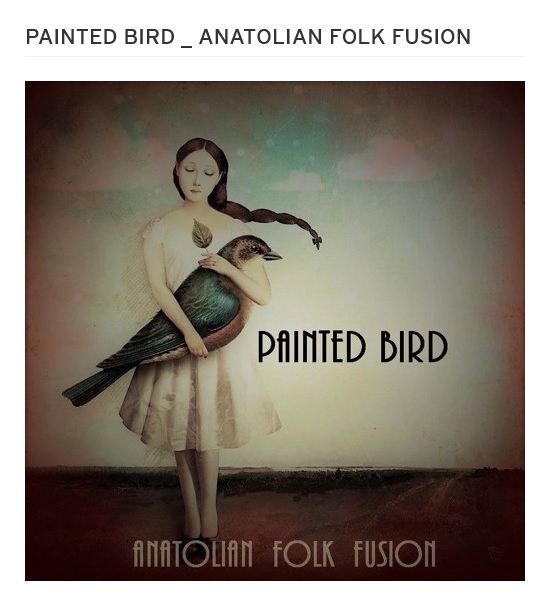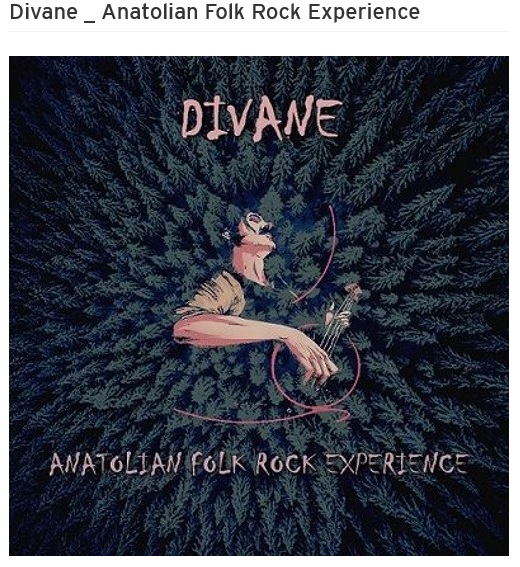TUNQ - traditional/modern fusion from Turkey
- Terry Wigmore
- May 25, 2019
- 6 min read
Updated: May 26, 2019
Introduction (by Terry)
My involvement with Sound Cloud has presented me with an opportunity to grow in my own learning about music, instruments and even geography and culture from around the world. Sound Cloud seems to be a global community of musicians, and that is like a drink of water to a thirsty musician. One of the artists who began to catch my ear because of his incredible ability to compose and record music that blends contemporary sounds and musical instrumentation (electronic) with traditional instrumentation, sounds, rhythms, time signatures and tempos, is the artist known on Sound Cloud as Tunq (Tuna Koç). His music is a rich tapestry of sounds that have roots in Tunq's learning and years of experience as a student and teacher of music in the Anatolian region of Turkey.
For me, the blend of Tunq's expertise with traditional musical forms and his awareness of contemporary electronic sounds (drums, beats, synthesizers) created a musical experience that was a like a blend of Drake and Tales of the Arabian Nights or Disney's Fantasia. I am going to let most of this blog be in Tunq's own words. English is not his first language but I would like the reader to follow Tunq's discussion of his journey into music and the music he posts to Sound Cloud in his own words, with minimal editing from me. When it comes to pointing to a few of his favourite recordings on SoundCloud, I will provide the links so the reader can click and listen to Tunq's music directly from his SoundCloud page. What follows are Tunq's written response to several biographical questions I sent to him when I inquired whether or not he might be interested in participating in the blog on music and musicians on my personal website. I should note that Tunq is a retired educator with a focus on gathering traditional folk music for preservation in musical archives that he has created. With years of experience in teaching music to young people and leading youth orchestras, as well as traveling throughout various regions of Turkey, Tunq is uniquely qualified to speak to his own music and recordings without having me act as a spokesperson or interpreter. I am going to step aside and let him speak through his own words (minimally edited for ease of reading).
Tunq in his own words
At a very young age, I began to learn about traditional instruments. As a child of a family of teachers (my mother was a very successful traditional music soloist), I was directed to this area. The name of the instrument I started to play at a young age is "Bağlama (binding)". This name has been taken because the curtains are attached to the handle. This instrument is very popular in the whole of the geography of Anatolia and has been played with different playing techniques by region. I learned these techniques until my teenage years and played the instruments in many amateur communities. This allowed me to go deeper into the folk literature and to recognize the intricacies of that art. However, the traditional methods of enforcement no longer satisfy me. Because as I entered the study of music, I began to recognize and be influenced by world music.
I have come across the fact that our music, which traditionally has a singular structure, does not experience the evolutionary processes of other world music. In our society that started to industrialize, rural and rural life was replaced by metropolitan experiences. Migration started from the villages to the big cities. With this immigration, the traditional structure was gradually replaced by a new and unpredictable urban culture. When I came to the 80s, I decided to study music academy and learn the laws of harmony. Violin became my main instrument. I took my first step to music in the professional sense by winning the examination of Gazi Faculty of Education which educates music teachers in Ankara and gives education at the conservatory level. My teachers decided to start my violin training and when I was 19, I started to learn violin. This is actually a very late age, but nevertheless successful virtuosos have been raised above expectations. In classical school; orchestra, chamber music, harmony, piano, history and theory of music, polyphonic choirs, traditional music repertoires and many more lessons taken by the country's most famous teachers.
After my graduation, I got married and was assigned to the city of Van on the Iranian border in the east of the country. It was like a trip to the past for me. I was the first "violinist" to go to that city. I was one of the founders and first teacher of the music school in 1993 at his newly opened university. I stayed there for 25 years, I gathered over 50 ancient Anatolian folk dances and recorded them in the repertoire of the ministry of culture. I studied with Akşin Alizade, a Azerbaijani state artist, and took ş orchestration sanat lessons. At this stage, I have collected dozens of music from the region in my own orchestra, and I made it to the young musicians of the region (my students). I have studied violin, music theory, harmony, orchestra, music history and popular music. 2500 students received music education in 25 years, they became music teachers and this process is still continuing. In this adventure, which we started with three people, it is currently continuing its education with 20 professional musicians in its specially equipped building. I will not remember the number of domestic, international concerts, theater music, festivals, competitions .
About a year ago after I retired I tried my hand at the family business - we owned a fishing boat - and settled in the Mediterranean coast town of Antalya. When my my son and daughter began studying at universities, I moved to the forest village of Adrasan, in Antalya, far from the noise of the city. Here, I designed a room in my home in the style of a home studio, but I haven't completed the configuration yet. I haven't been able to record with a microphone due to external noise. When new and more favorable conditions are created, I can still record and search for a more suitable venue.
In the last few years of my teaching experience, I started to give lectures about popular styles. There were groups I had followed very closely before, but when I was able to teach, this interest grew and became a passion. In our small group of students, we started to experiment with some electronic additives. However, the shortcomings in the resulting products pushed me to hear more professional sounds and work alone at the level of arranger. A musician who is accustomed to working with classical writing techniques and has been educated in the studio environment faces many difficulties. I still live in those difficulties often. Most of my days have been spent in an effort to learn computerized music technologies.
I try to follow all the innovations and update my system accordingly. I also continue all these processes without any technical support from anyone. I can't say that I'm just starting the real journey I want to do in music. But I can say that my main starting point is the interpretation of traditional music with modern understanding of Ama. The fusions in which each style in western music (classic, rock, jazz, new age, chill out age) come to life. I am a musician whose style is called Anatolian folk rock-pop gerekti, which emerged in 70s in our country. I think that this style has been silenced outside of a few groups, and should be revived. Because the popular music products in our country in the evolution of music has reached the desired levels. And I think that this style will increase young people's interest in music. I tested it myself. My previous work is a test phase of what I can do and what I can't do. Here are a few suggestions for readers to listen to that are closest to the sounds I want: Divane _ Anatolian Folk Rock Experience , PAINTED BIRD _ ANATOLIAN FOLK FUSION and Wing (Progressive Folk Ambient)
I post music to several music-hosting platforms such as SoundCloud (SC), Bandcamp, Reverbnation, Musicoin, but I'm a member of sites with my favorite musician friends, to stay in touch. I've been with SC for two years. This site is a school for those who know the right way to use it. I have seen, heard and practiced many different experiences that were not taught in many books, not taught in schools. I realized how great the world was, how ve Wisdom uygulama was, and how it should be done.
Getting paid for one's music is something that every musician will want, I think. Music may legitimately have a price attached, but the idea of keeping up with the market trends has always been far away from me. That's why I think every piece is a new and different journey. I can't listen and work the same sound for a long time. Even similar effects cannot work for too long. When I chose to retire from teaching, I found that staying away from school and my students initially upset me, but loneliness was something I was already used to in my personal life. The nature of the place I chose for retirement spoke to me. Being so close to the earth, the forest, the sea and the animals has opened the door to a new life for me. I've been getting better moments of inspiration and connection; I understood the value of time and the beauty of the masses to be discovered.
Last word: “Nihil humanum mihi alienum est”
Best Regards,
Tuna
Note: TUNQ's music can be found on SoundCloud: https://soundcloud.com/tunqsounds











Comments